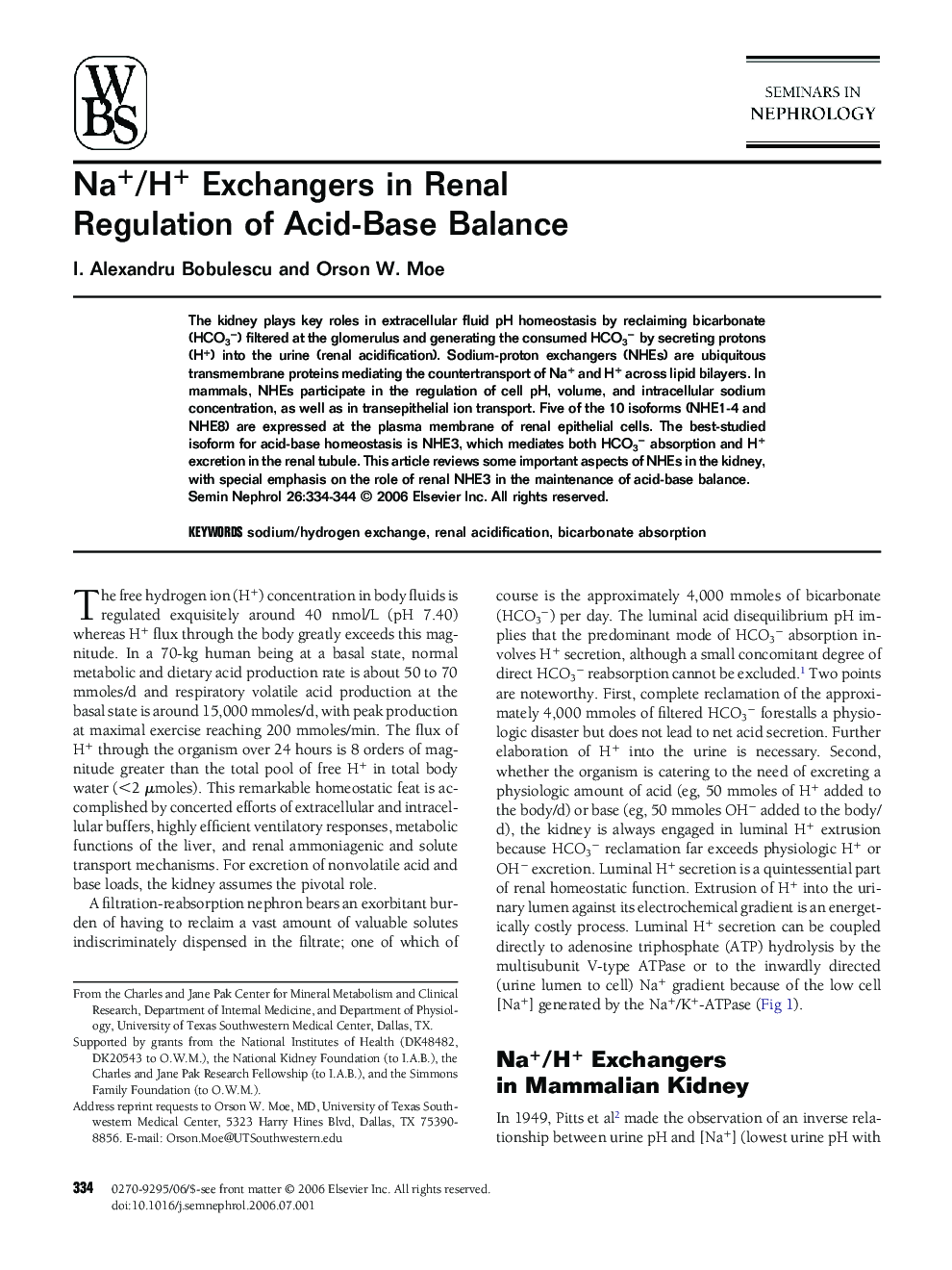| Article ID | Journal | Published Year | Pages | File Type |
|---|---|---|---|---|
| 3897422 | Seminars in Nephrology | 2006 | 11 Pages |
The kidney plays key roles in extracellular fluid pH homeostasis by reclaiming bicarbonate (HCO3−) filtered at the glomerulus and generating the consumed HCO3− by secreting protons (H+) into the urine (renal acidification). Sodium-proton exchangers (NHEs) are ubiquitous transmembrane proteins mediating the countertransport of Na+ and H+ across lipid bilayers. In mammals, NHEs participate in the regulation of cell pH, volume, and intracellular sodium concentration, as well as in transepithelial ion transport. Five of the 10 isoforms (NHE1-4 and NHE8) are expressed at the plasma membrane of renal epithelial cells. The best-studied isoform for acid-base homeostasis is NHE3, which mediates both HCO3− absorption and H+ excretion in the renal tubule. This article reviews some important aspects of NHEs in the kidney, with special emphasis on the role of renal NHE3 in the maintenance of acid-base balance.
